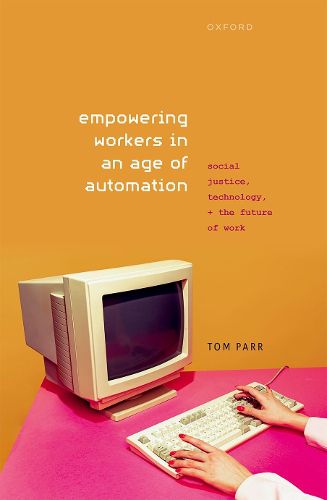Readings Newsletter
Become a Readings Member to make your shopping experience even easier.
Sign in or sign up for free!
You’re not far away from qualifying for FREE standard shipping within Australia
You’ve qualified for FREE standard shipping within Australia
The cart is loading…






Empowering Workers in an Age of Automation explores how labour market policymakers should respond to the threats and opportunities that arise from automation, artificial intelligence, and other forms of technological progress. The book's aim is twofold. First, it is to develop and defend a novel philosophical framework for theorizing about the demands of social justice in the labour market, which Parr calls 'the empowerment model'. At the heart of this view is a concern for fairness and, more specifically, a concern for the growing inequality in prospects between members of the working-class and their middle- and upper-class counterparts. Second, it is to examine a range of concrete political controversies relating to labour markets and the future of work in the light of the empowerment model. The analysis presented is wide-ranging, and includes discussion of technological unemployment, the four day work week, the gender earnings gap, working from home, and role of higher education. Throughout the text, Parr is keen to caution against sensationalist narratives, and instead emphasizes the more prosaic but still hugely consequential ways in which technology is changing how we work. To do this, he draws on a wealth of empirical research, and extensively from findings in labour economics. The result is a book that takes seriously, and aims to shed light on, some of the most pressing challenges that we actually face.
$9.00 standard shipping within Australia
FREE standard shipping within Australia for orders over $100.00
Express & International shipping calculated at checkout
Empowering Workers in an Age of Automation explores how labour market policymakers should respond to the threats and opportunities that arise from automation, artificial intelligence, and other forms of technological progress. The book's aim is twofold. First, it is to develop and defend a novel philosophical framework for theorizing about the demands of social justice in the labour market, which Parr calls 'the empowerment model'. At the heart of this view is a concern for fairness and, more specifically, a concern for the growing inequality in prospects between members of the working-class and their middle- and upper-class counterparts. Second, it is to examine a range of concrete political controversies relating to labour markets and the future of work in the light of the empowerment model. The analysis presented is wide-ranging, and includes discussion of technological unemployment, the four day work week, the gender earnings gap, working from home, and role of higher education. Throughout the text, Parr is keen to caution against sensationalist narratives, and instead emphasizes the more prosaic but still hugely consequential ways in which technology is changing how we work. To do this, he draws on a wealth of empirical research, and extensively from findings in labour economics. The result is a book that takes seriously, and aims to shed light on, some of the most pressing challenges that we actually face.